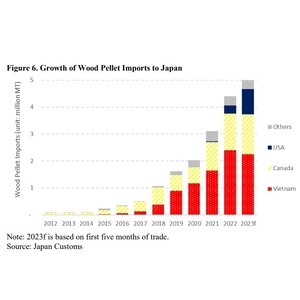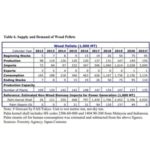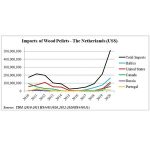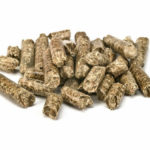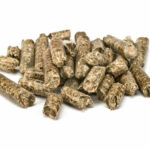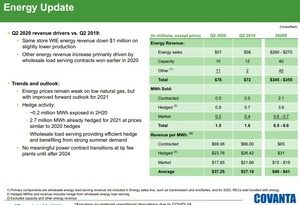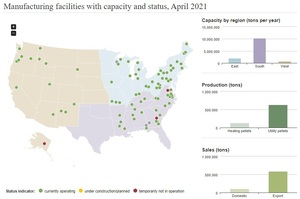Report: Japan’s import of wood pellets to increase in 2023
Energy Disrupter
ADVERTISEMENT
Japan has been dramatically increasing its wood pellet imports for its feed-in-tariff (FIT) program, with wood pellet imports expected to reach an estimated 4.25 million bone-dry tons this year, according to a report filed with the USDA Foreign Agricultural Service’s Global Agricultural Information Network in August.
The report explains that Japan expanded its FIT scheme to include a wider range of renewables following the Fukushima Dai’ichi nuclear power plant accident in 2011, which was caused by an earthquake and tsunami. Prior to that accident, the FIT scheme applied to only solar power. An expanded FIT scheme was adopted by Japan in 2012 that covers most sources of renewable energy, including biomass, wind, geothermal and small-scale hydro in addition to solar. Under the FIT scheme, power utilities companies charge customers a fixed price, or tariff, for power from eligible renewable power generators for predetermined periods after the power plants start operation. According to the report, the FIT program maintained a set price regardless of the wholesale electricity price. Beginning in fiscal year (FY) 2022, Japan introduced a feed-in premium (FIP) program for renewable power sources under which the Ministry of Economy, Trade and Industry (METI) sets a fixed premium that is added for the average price of wholesale electricity over the previous 12 months.
Wood pellets used under the FIT scheme are subject sustainability requirements. Beginning earlier this year, Japan’s Ministry of Economy, Trade and Industry (METI) has required biomass power generators to calculate lifecycle greenhouse gas (GHG) emissions. METI has also published default GHG emissions values associated with biomass feedstock eligible for the FIT/FIP programs for power generation. METI has also indicated its plans to require power plants to provide information to verify their GHG emissions calculations.
In addition to imported wood pellets and domestic sources of biomass, palm kernel shells (PKS) are also used to fuel biomass power facilities. Starting in April 2024, METI plans to introduce mandatory sustainability requirements for PKS for use in the FIT program. The report predicts that these new sustainability requirements could slow the import of PKS in the future.
Japan’s power plants and industrial heat boilers take in a variety of biomass feedstocks. Wood pellet imports reached an estimated 3.746 million bone dry tons (BDT) last year, up from 2.649 million BDT in 2021 and 1.724 million BDT in 2020. Wood pellet imports are currently expected to reach 4.25 million BDT this year. Approximately 54 percent of 2022 wood pellet imports came from Vietnam, with 31 percent from Canada and 7 percent from the U.S.
Japanese bioenergy facilities also consumed 90,000 BDT of domestically produced wood pellets in 2021. That level of consumption was expected to remain stable through 2022 and 2023. Consumption of domestic wood chips was at 10.288 million BDT in 2021 and is estimated at 10.4 million BDT for 2022 and 10.6 million BDT for 2023.
Consumption of imported wood chips was at 405,000 BDT in 2021 but was expected to fall to 300,000 BDT in 2022 and 2023. Japanese bioenergy facilities also consumed 3.56 million BDT of imported PKS in 2021, with consumption at 4.142 million m BDT in 2022 and forecast to reach 4.8 million BDT this year.
A full copy of the report is available on the USDA FAS GAIN website.

